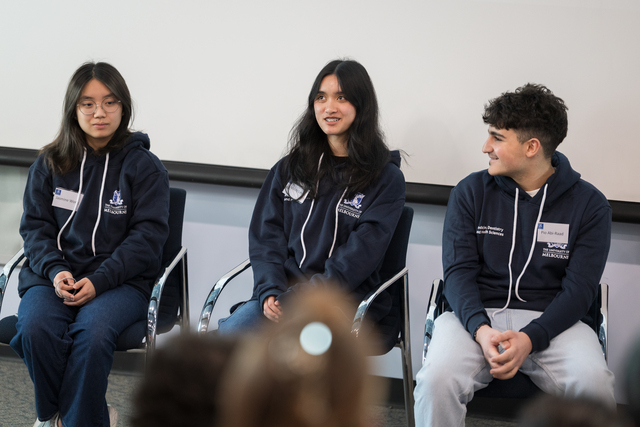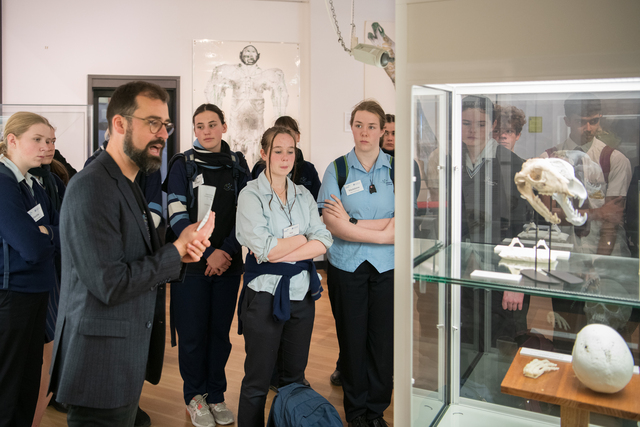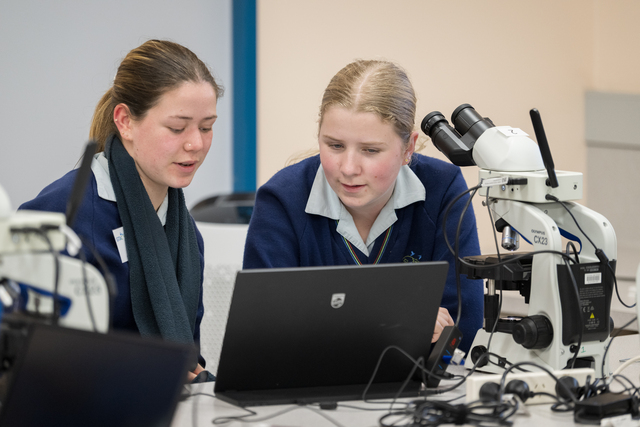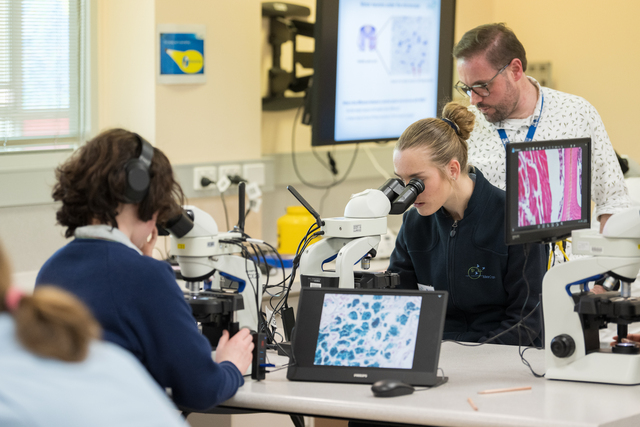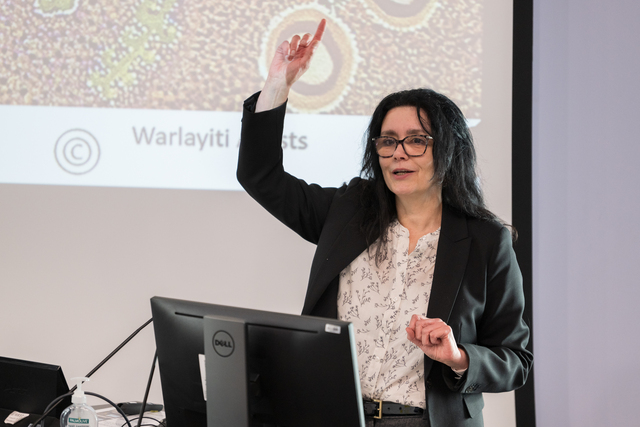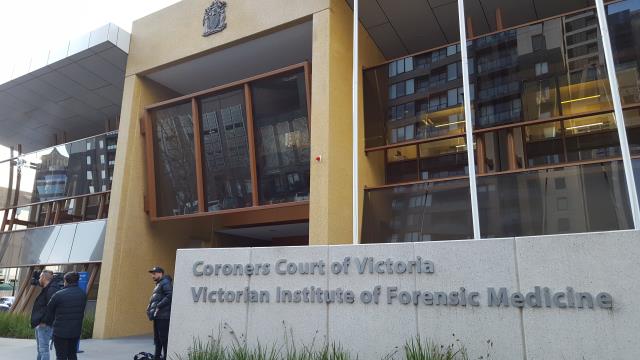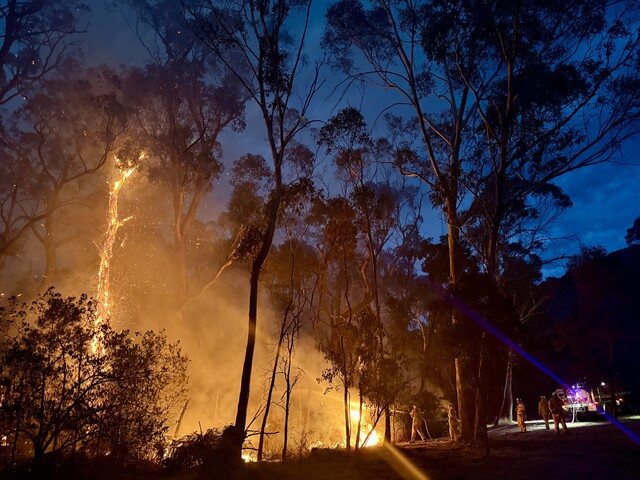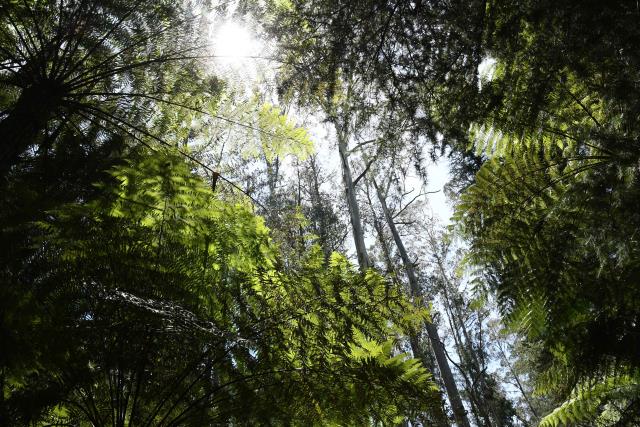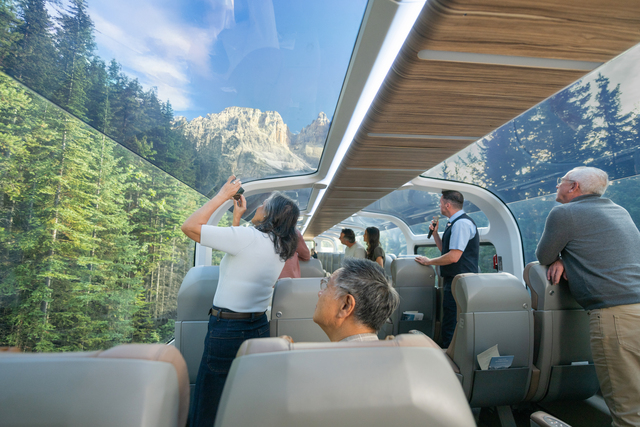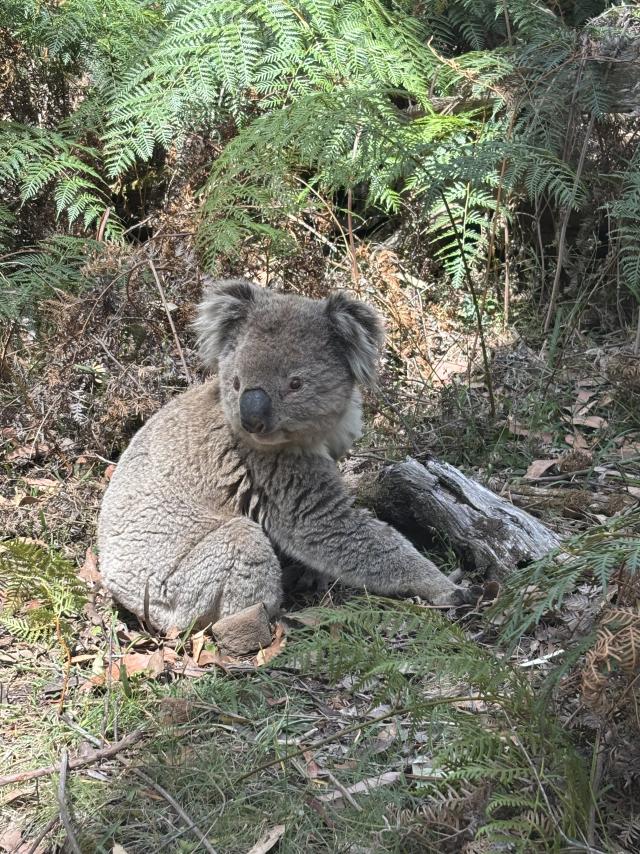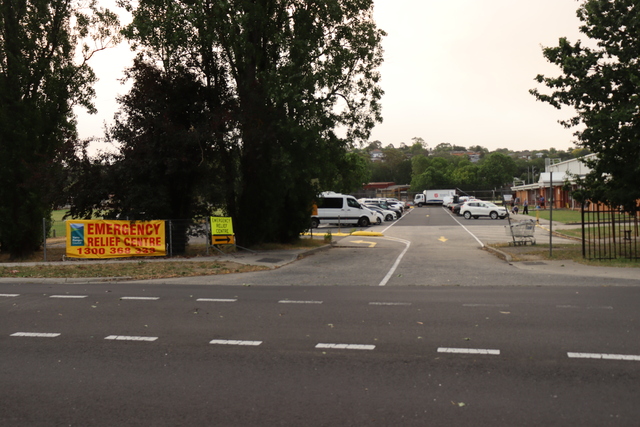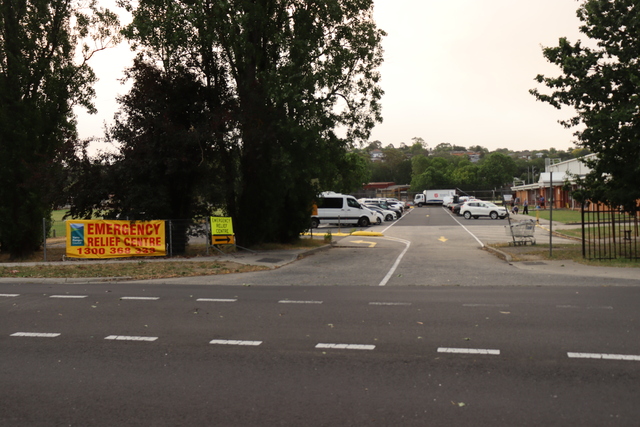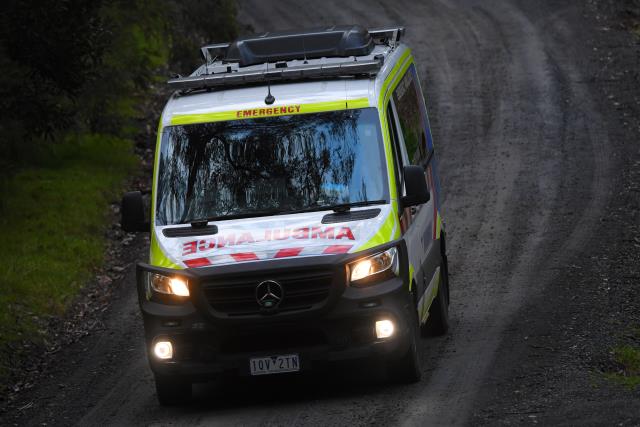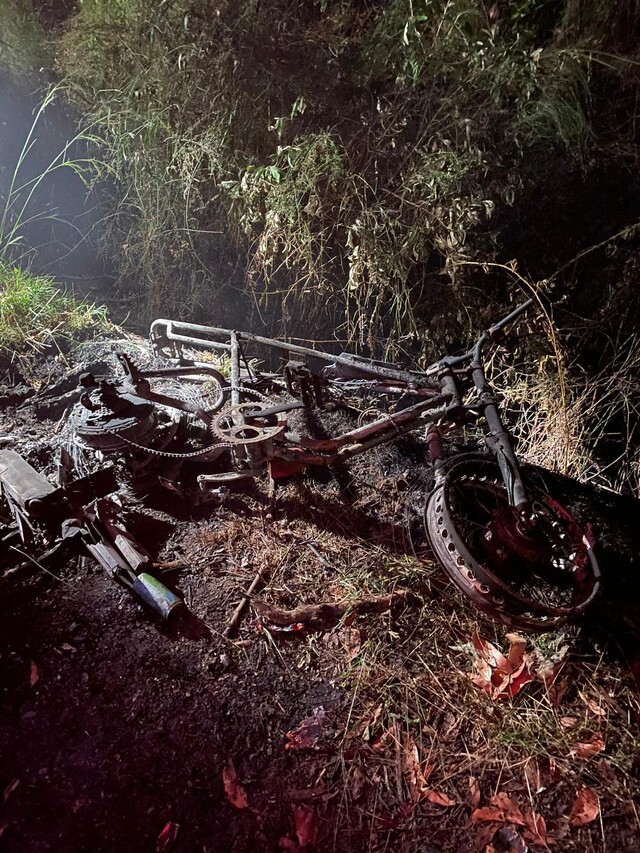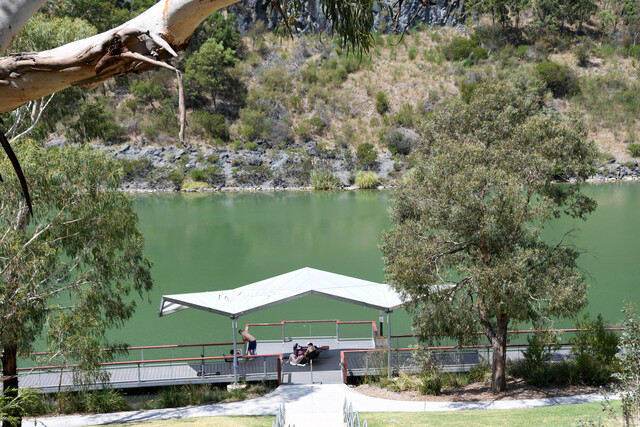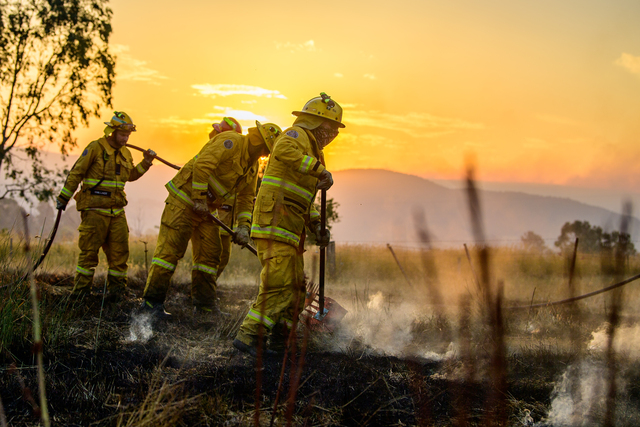Budding scientists embrace Biomedical Sciences Day at the University of Melbourne during National Science Week.
Year 10 and 11 students from Mater Christi College were amongst 280 students, from across Melbourne and regional Victoria to attend one of just three Annual Biomedical Sciences Days at the University of Melbourne.
Local students and their science teacher had the exciting opportunity to experience life as a biomedical scientist at the event presented by the University of Melbourne’s School of Biomedical Sciences and the Gene Technology Access Centre (GTAC).
Students worked alongside researchers in the Gene Technology Access Centre Laboratories learning about a range of disease states, working with the specimens to photograph them using light, fluorescence and scanning electron microscopes, and had the opportunity to enter the images into their own ‘Under the Microscope Coverslip’ Competition.
They also took a behind the scenes look at the University’s Harry Brookes Allen Museum of Anatomy and Pathology, a rare opportunity to uncover real tissue specimens and historical anatomical models in a space that isn’t open to the general public.
Time spent in the AdaptLab allowed students to experience how innovative digital technology is used to study the human body utilising 3D VR heart
models giving the opportunity to ‘hold’ the heart in the hand and examine the various structures making a human heart.
“The museum gave me a new perspective on the human body. It’s amazing to see what disease looks like” said one student who is starting to think about university study.
Their teacher said the students all had a wonderful learning experience that sometimes took them out of their comfort zone.”
A panel of current Bachelor of Biomedicine University students, spoke about their courses, sharing the diverse subject and research topics they are pursuing, life after VCE including life on campus with newfound freedoms and friends, and for some the move to living in Melbourne.
The Mater Christi College students also learned about Scholarships and Access Melbourne, a program that helps students from rural or regional areas gain entry to undergraduate courses at the university.
Each year, 20 per cent of domestic undergraduate places are reserved for Access Melbourne applicants.
The University’s Head of School of Biomedical Sciences, Professor Jennifer Wilkinson-Berka, encouraged the students to think about the science behind what creates, sustains and threatens people’s lives in Australia and beyond and spoke of the revolutionary work underway at the school, and
the Gene Technology Access Centre— including biological processes to better understand human health, computational biology, 3D printing to replace bones, genomics: new tools for cancer treatments, and new vaccines to combat disease.
Professor Wilkinson-Berka encouraged students to consider the Bachelor of Biomedicine after completing their VCE studies.
“When you come to Melbourne, you don’t just come to the School of Biomedical Sciences,” she said.
“You have access to the whole of the Melbourne Biomedical Precinct, a collaboration of hospitals and research institutes that are right on our doorstep, not to mention the diverse range of career opportunities upon completion of your studies.”
For all, the day provided insights into what biomedicine is today and the diverse range of opportunities and impact biomedicine offers, and importantly what a life studying at University could look like for these students.

